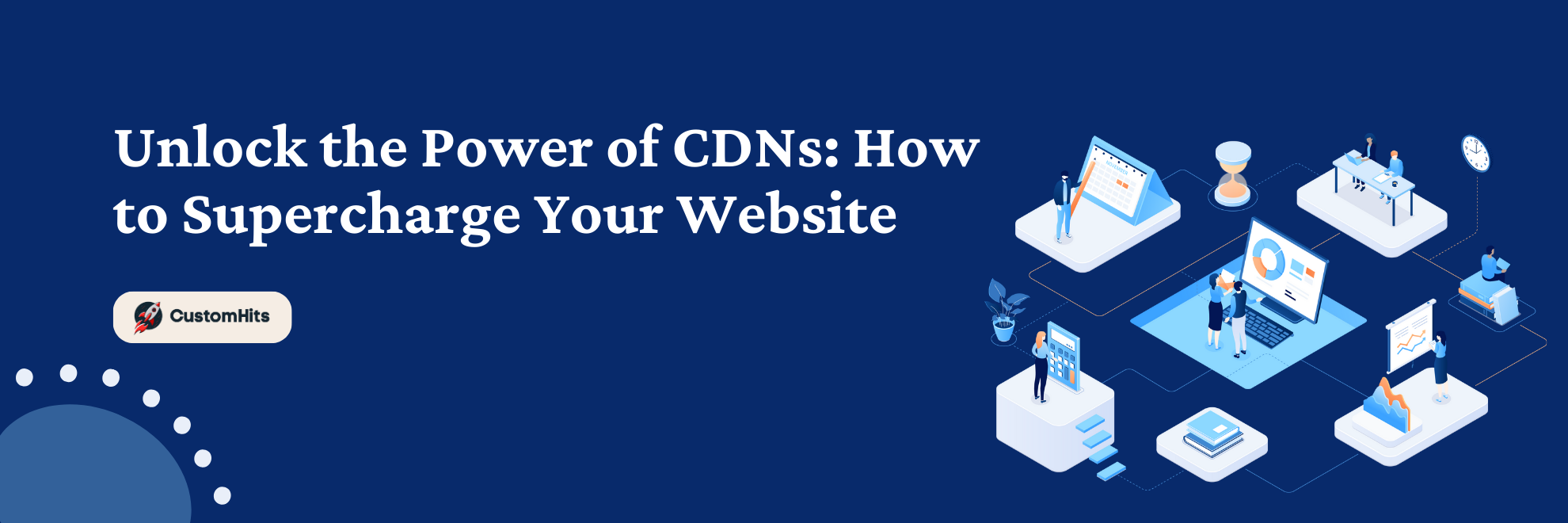

Overview
Content
Introduction
Hello again, wonderful readers! We're diving into a subject today that might seem a little techy, but it's incredibly important for anyone who's serious about their online presence: website speed. Now, I know we've all had those moments where we're pulling our hair out, waiting for a webpage to load. Speed matters and that's why today we're focusing on Content Delivery Networks (CDNs), a hidden weapon in the arsenal of high-speed web performance. Strap in, because we're going to delve into how using a CDN can revolutionize your website's speed.
Why Speed Matters: A Brief Overview
I know, it's 2023 and it seems like everything has to be fast. But let's not underestimate the immense power of website speed. Several research studies have hammered home the point that even a one-second delay in page load time can reduce conversions by 7% and increase the bounce rate by up to 32%. And if you think Google doesn’t care, think again! Speed is one of Google's ranking factors. Companies like Amazon have gone to great lengths, investing a fortune to improve website speed. They found that even a one-second delay could cost them $1.6 billion in sales each year. So yes, speed is not just a "nice-to-have" but an absolute must in today's digital landscape.
What is a CDN? Decoding the Acronym
Hold on, what even is a CDN? Good question. A Content Delivery Network is basically a collection of servers located in different parts of the world. The servers keep copies of your website's content to serve to users based on their geographic location. Imagine having a bunch of mini-storage units all over the world, stocked up with your website's data. When someone in London accesses your website, they're served content from the nearest 'storage unit' rather than hauling it all the way from, let's say, a server in San Francisco. It's a brilliant way to optimize data delivery and slash loading times.
CDN vs. Traditional Hosting: What's the Difference?
You might be wondering, "I already have web hosting, so why do I need a CDN?" Traditional web hosting stores your website data in a single location. It works well if your audience is mostly local, but what if your website has global ambitions? CDNs distribute the load, ensuring your international audience isn't waiting for content to load from a server that's oceans away. Plus, when a major traffic surge occurs, like on Black Friday or during a product launch, a CDN can handle the increase in user requests much more effectively than traditional hosting, making sure your website doesn't crash and burn when it matters most.
The Magic Behind CDN: How it Works
Here's where it gets really exciting. CDNs are smart. They cache, or temporarily store, your website's content close to your users. Let's use streaming services as an example. If you're operating a service similar to Netflix, your CDN will store parts of movies and shows near the user, reducing buffering and load times significantly. This is vital for user satisfaction and keeps people from jumping ship to a competitor.
Key Features of a CDN You Should Know About
While speed optimization is the primary function of a CDN, it also brings to the table additional perks like DDoS protection, data compression, and more. Some even offer rudimentary analytics, which while not as comprehensive as specialized services, provide a good snapshot of your website's performance. CustomHits, for instance, focuses on delivering quality, targeted traffic. In a similar vein, pairing a good CDN with quality traffic can offer synergistic benefits. It can transform your website into a well-oiled machine, primed for both speed and security.
Steps to Implementing CDN on Your Website
If the thought of incorporating a CDN into your website sounds like a technical nightmare, let me ease your worries. Most popular CMS platforms like WordPress, Joomla, and Magento offer fairly straightforward ways to integrate CDN services. It's often as simple as installing a plugin and toggling a few settings. No need for a degree in computer science to get it going, I promise.
Real-World Success Stories: CDN in Action
To hammer home the effectiveness of CDNs, look no further than industry leaders like Airbnb, Spotify, and even The New York Times. They've effectively leveraged CDNs to slash load times and improve user experience, which has led to increased engagement and customer loyalty. Their success offers a practical blueprint for what CDNs can achieve when implemented correctly.
Tips to Maximize Your CDN Investment
Before we wrap up, let's talk strategy. When choosing a CDN, opt for services that offer advanced features such as real-time analytics, DDoS protection, and data compression. Look for options that can handle image and video optimization, as well. All these combined can really give you the most bang for your buck.
Conclusion
So there you have it, a deep-dive into the world of Content Delivery Networks. If your website has been languishing in the slow lane, it's time to consider making the switch to a CDN. Boost your speed, improve your SEO, and provide your users with the experience they deserve.
